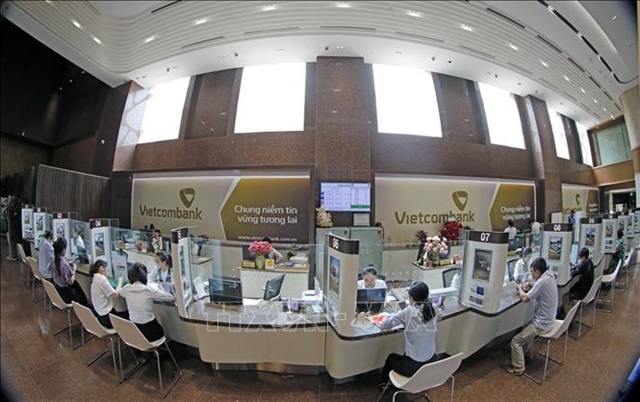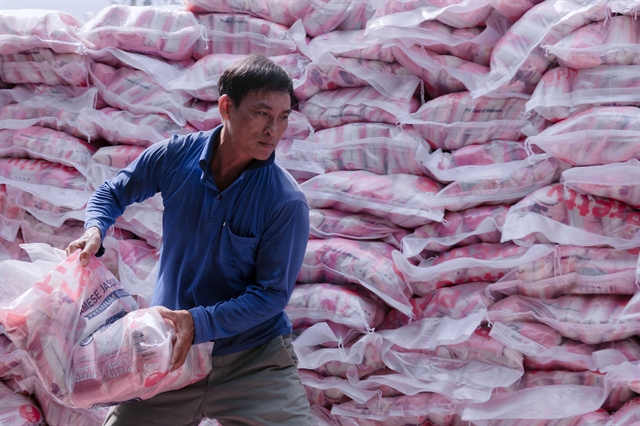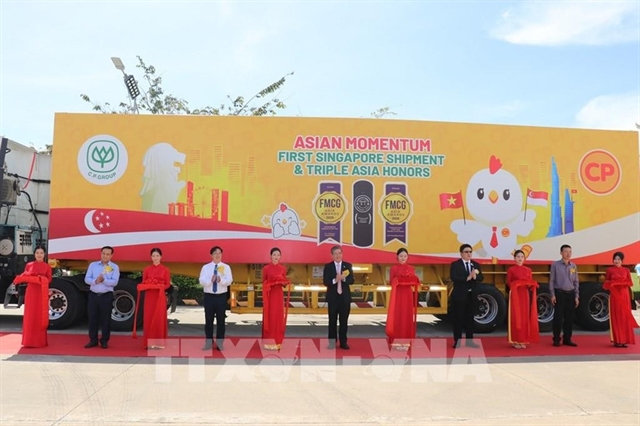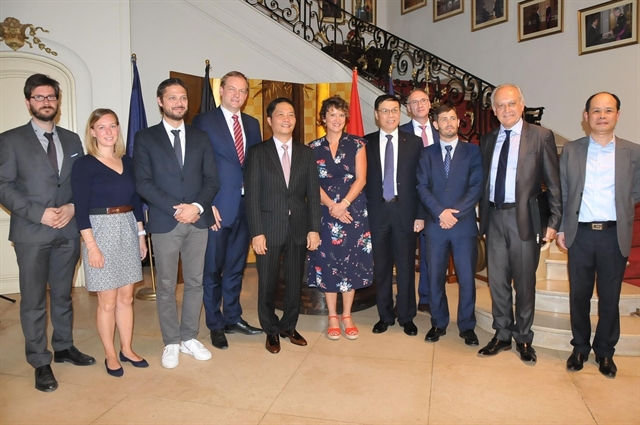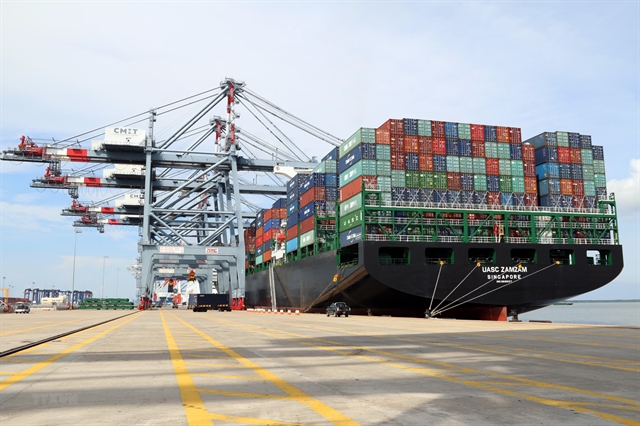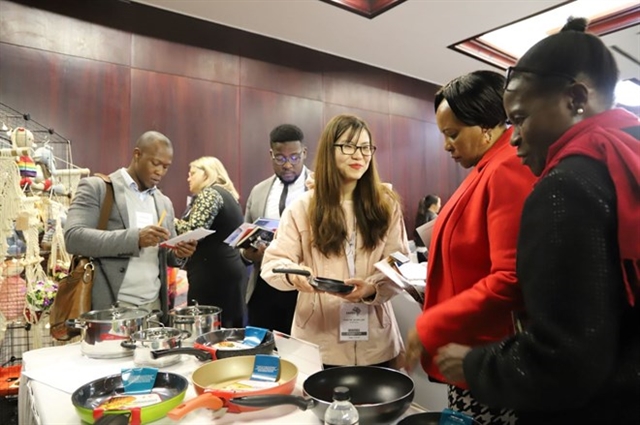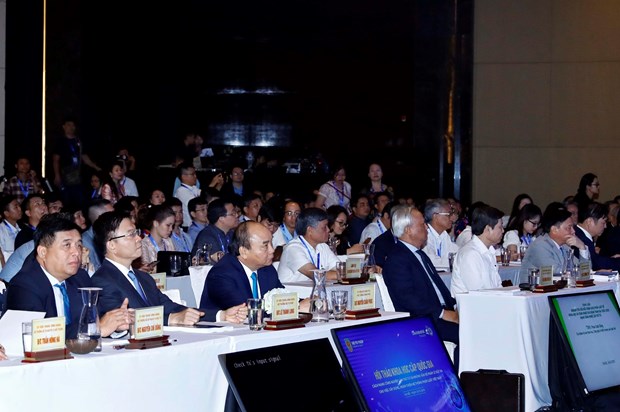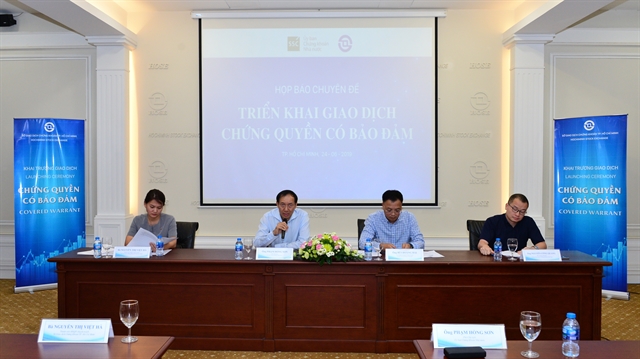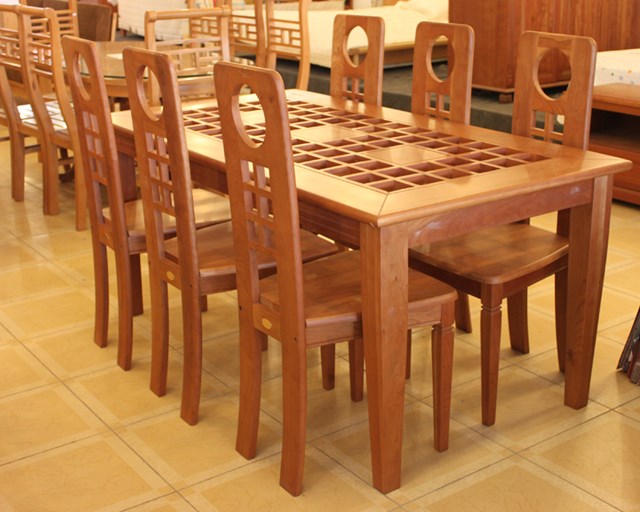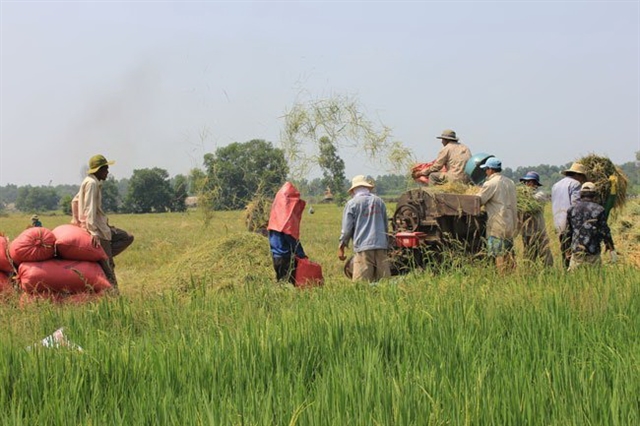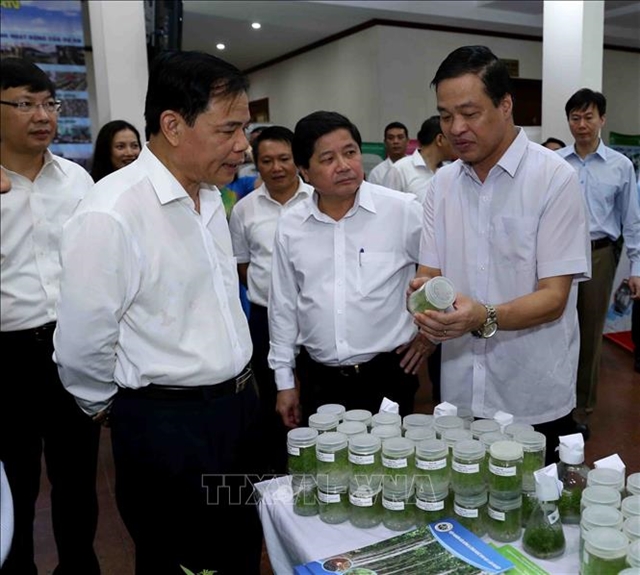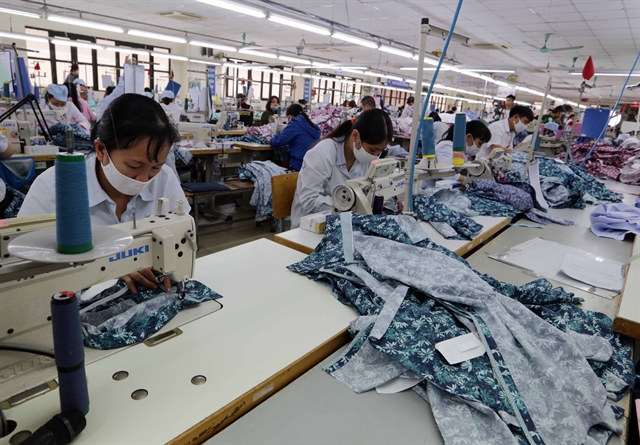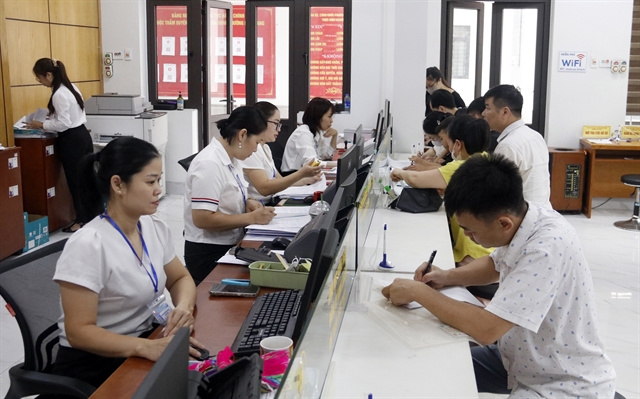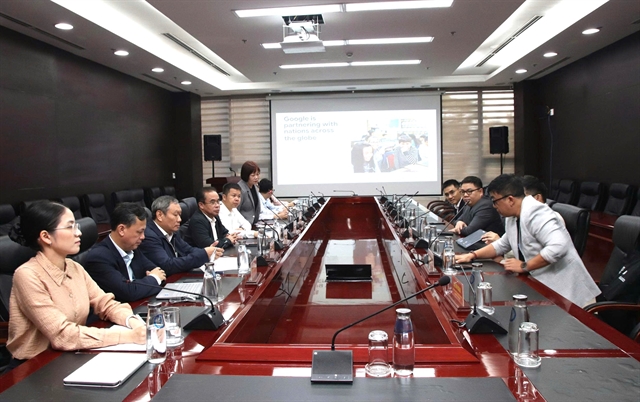

|
| Customers shop for beef at a Lotte Mart supermarket in HCM City. Retail and wholesale is one of the most attractive sectors for foreign investors. Photo thegioitiepthi.vn |
HÀ NỘI – Foreign investors registered to pour US$1.73 billion into Việt Nam in June, bringing the total amount of foreign direct investment (FDI) committed to the country in the first six months of the year to $18.47 billion, down 9.2 per cent year on year. Experts have said the decline is due mainly to a number of large-scale projects that received licences in June last year.
Statistics from the Ministry of Planning and Investment’s Foreign Investment Agency show performance was strong in the first five months of the year, with FDI pledged to the country hitting a four-year high for the period of $16.74 billion, up 61 per cent year on year. The performance for the first half of the year was dragged down only by the numbers for June.
More than 1,720 new projects, valued at $7.41 billion, were granted investment licences in the first half of this year, marking a year-on-year decline of 37 per cent. Meanwhile, 628 existing projects were allowed to raise their capital by $2.96 billion, equivalent to just 66 per cent of the same period last year.
On a more positive note, overseas players spent $8.2 billion to acquire shares in Vietnamese companies in the first quarter of the year, a yearly increase of 98 per cent and accounting for 44 per cent of all registered capital.
FDI disbursement also saw a rise of 8 per cent to $9.1 billion from January to June.
Among 19 fields and sectors receiving capital from foreign investors, manufacturing and processing led with $13.15 billion, accounting for 71 per cent of the nation’s total FDI. Real estate came next with $1.32 billion (7.2 per cent) followed by retail and wholesale with $1.05 billion (6 per cent).
Hong Kong retained its position as Việt Nam’s leading source of FDI in the six-month period with $5.3 billion, making up 29 per cent of total investment, thanks in large part to Beerco Limited spending $3.85 billion on a stake in Vietnam Beverage Co Ltd.
South Korea ranked second with $2.73 billion (15 per cent of all FDI), followed by mainland China with $2.29 billion (13 per cent). Singapore and Japan were the runners-up with $2.2 billion and $1.95 billion, respectively.
The capital city remained the most attractive destination for foreign investors as it lured more than $4.87 billion, equivalent to 26.4 per cent of all FDI pledged in the country. The southern economic hub of HCM City came next with $3.1 billion (17 per cent) and the southern province of Bình Dương claimed third position with $1.37 billion (7.5 per cent).
The foreign-invested sector recorded a trade surplus of $15.7 billion in the January-June period as it exported $85.9 billion worth of goods, up 6 per cent year on year, while its imports topped $70 billion, surging 8 per cent over the same period last year.
During a meeting on Sunday with Thailand’s major corporations on the sidelines of the ASEAN Summit in Bangkok, Prime Minister Nguyễn Xuân Phúc said the Vietnamese Government was continuing to work on creating favourable conditions for foreign companies to do business in the country.
However, Việt Nam would not accept all FDI projects, but instead would focus on projects that apply modern and environmentally friendly technologies and are energy efficient, the PM said.
Earlier, Bảo Việt Securities Company (BVSC) predicted that FDI into Việt Nam would likely hit $22 billion in 2019, up 13 to 15 per cent year on year.
The main sources for FDI growth in the near future would come from South Korea, mainland China, Taiwan and Hong Kong, said BVSC in its latest report. – VNS


